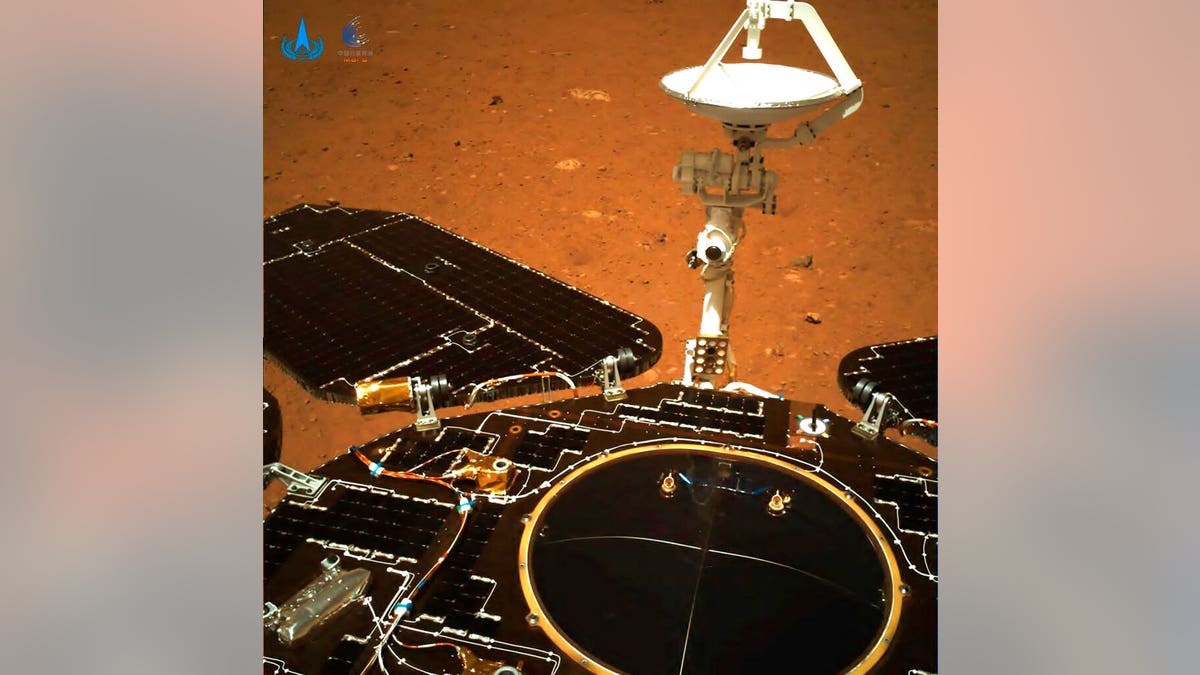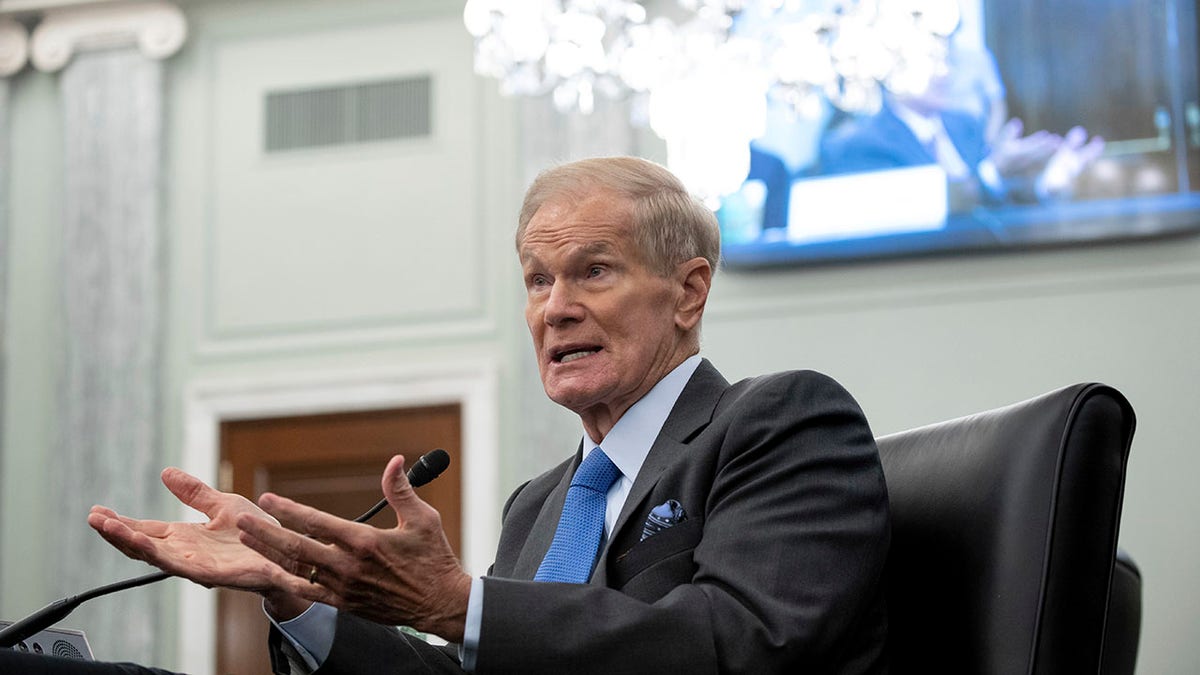SpaceX successfully launches NASA astronauts into space
SpaceX successfully launches NASA astronauts from Kennedy Space Center into space.
NASA Administrator Bill Nelson addressed concerns regarding recent competition from China's space program.
Speaking virtually on Wednesday with lawmakers at his first congressional hearing as the agency's 14th administrator, he discussed future China National Space Administration (CNSA) endeavors.
Space.com reported that Nelson spotlighted the agency's plans to send three "big" landers to the moon – whereas, comparatively, NASA is slated to launch just one ice-hunting rover there in 2023.
CHINA SAYS IT HAS LANDED ITS FIRST PROBE ON MARS
The former Democratic Florida senator who flew on a space shuttle in 1986 reportedly also highlighted reports that CNSA would send astronauts on a trip near the moon and land there within the decade.
"In other words, they're going to be landing humans on the moon. That should tell us something about our need to get off our duff and get our human landing system going vigorously," he said.
In addition, the newly appointed head showed attendees a photo of the East Asian power player's Zhurong Mars rover, which successfully landed on the red planet last week as part of the country's Tianwen-1 mission.

In this photo taken by China's Zhurong Mars rover and made available by the China National Space Administration (CNSA) on Wednesday, May 19, 2021, the rover's solar panels and antenna are deployed as the rover sits on its lander on the surface of Mars. (CNSA via AP) (CNSA via AP)
In a statement released hours after CNSA released the first images taken by the rover, Nelson congratulated the country – now the second nation to land on Mars.
"Congratulations to the China National Space Administration on receiving the first images from the Zhurong Mars rover!" he said. "As the international scientific community of robotic explorers on Mars grows, the United States and the world look forward to the discoveries Zhurong will make to advance humanity’s knowledge of the Red Planet. I look forward to future international discoveries, which will help inform and develop the capabilities needed to land human boots on Mars."
Space News reported Wednesday that Nelson later charged the CNSA's initiatives like the Zhurong rover add "a new element as to whether or not we want to get serious and get a lot of activity going in landing humans back on the surface of the moon."
CHINA ZHURONG MARS ROVER'S FIRST PHOTOS FROM RED PLANET SURFACE REVEALED
"It is a very aggressive competitor," Nelson later noted. "They’re going to be landing humans on the moon. That should tell us something about our need to get off our duff and get our Human Landing System program going vigorously."
Notably, China and Russian space agency Roscosmos announced in March that they would partner to build a lunar research station, possibly on the moon’s surface.
The two countries did not set a timeline for the proposal.
In addition, Russia -- a decades-long partner of NASA -- said last month that the nation might withdraw from the International Space Station (ISS) as soon as 2025.

Former Sen. Bill Nelson, newly-appointed NASA administrator, speaks during a Senate Committee on Commerce, Science, and Transportation confirmation hearing, Wednesday, April 21, 2021 on Capitol Hill in Washington. (Saul Loeb/Pool via AP)
China launched the core element of its own Tianhe space station into orbit in April – a project the country aims to complete by the end of 2022.
In an impassioned plea, Nelson urged for help funding NASA's own Artemis Human Landing System (HLS) through the White House's American Jobs Plan legislation.
In total, Nelson requested more than $11 billion for both the ambitious program and facilities upgrades.
The 2022 NASA budget request is a $1.5 billion increase from 2021.
CLICK HERE FOR THE FOX NEWS APP
The New York Times reported on Tuesday that a new bill known as the Endless Frontier Act that would allocate $120 billion into scientific innovation had advanced past a procedural hurdle in the Senate – spurred by what the paper deemed to be a "sense of urgency in Congress to bolster the United States’ ability to compete with China."
"NASA can’t do it alone. You all are our partners," the administrator said, according to Space News. "We want a vigorous competition, but we’ve got to have the money in order to be able to do that."
NASA has pledged to land the first woman and first person of color on the moon by 2024.

